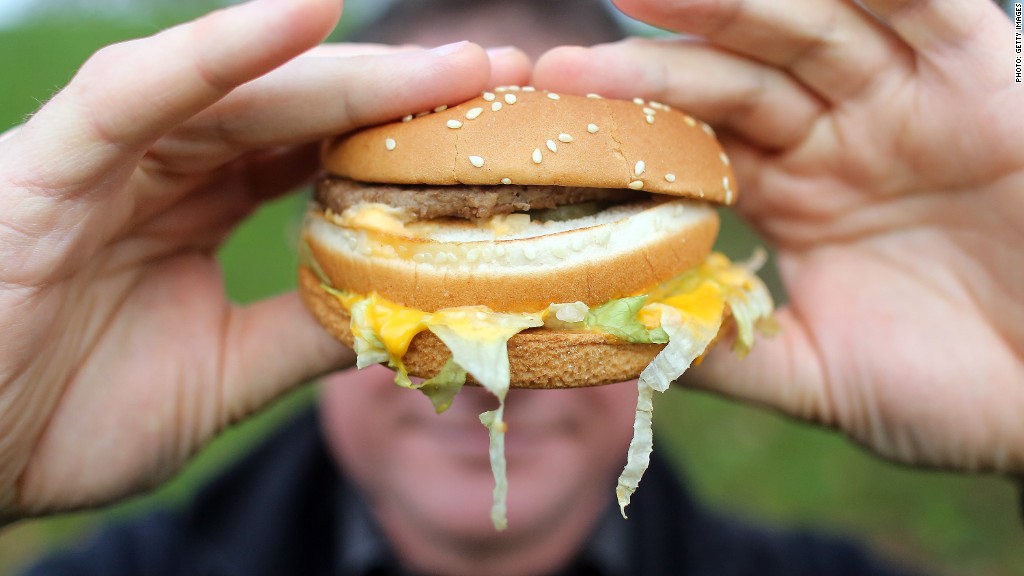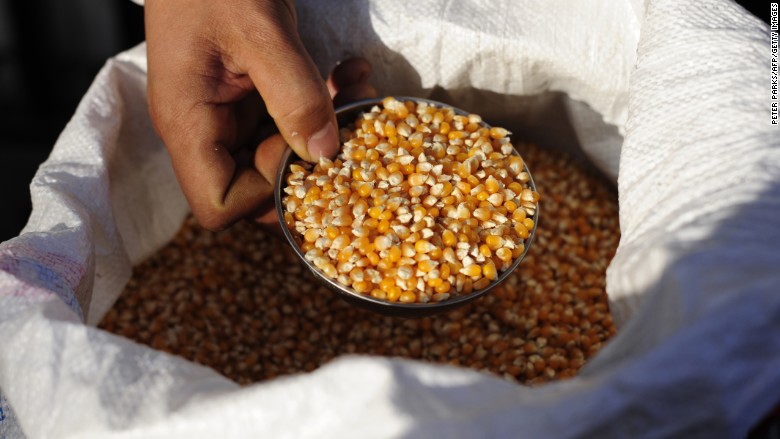
China is gobbling up major seed businesses to satisfy its growing appetite for food firms.
Two weeks ago, state-owned ChemChina finalized its $44 billion purchase of the Swiss pesticides and seeds giant, Syngenta. It was China's biggest foreign takeover of all time.
On Tuesday, Dow Chemical (DOW) announced that an agriculture fund backed by the Chinese government would pay $1.1 billion for its Brazilian corn seed and research business.
Chinese firms have spent $91 billion over the past decade purchasing nearly 300 foreign companies involved in agriculture, chemicals and food, according to Dealogic.
Why the massive spending spree?
Food security
Experts say the purchases are part of China's plan to improve its ability to supply food to its population of nearly 1.4 billion. As Chinese living standards improve and citizens demand more meat products, the country needs a growing supply of animal feed.
But China is contending with major challenges: An aging agricultural workforce, pollution, climate change and high levels of soil depletion, according to Rob Bailey, an expert in food security at policy institute Chatham House.
The country's farms also suffer from low yields due to outdated farming practices, said Brett Stuart, CEO and co-founder of Global AgriTrends.
The latest seed purchases show China wants to lock down the scientific know-how needed to improve its domestic crop yields, said Stuart.
"They're trying to acquire knowledge," he said. "I think these moves just show that they are trying to do as much as they can for food self-sufficiency ... There's not enough traded food in the world to save them were they to fail."
All countries try to protect against food shortages.
But the issue is particularly sensitive in China, which suffered severe food shortages during Mao Zedong's "Great Leap Forward," which began in the late 1950s.
Historians say that tens of millions of people starved to death during the famine, which remains a taboo subject in China.

National interest
Chinese purchases are in the national interest, but there are concerns over how nations -- and companies -- could respond to a modern food crisis.
"Countries are going to be increasingly concerned about how they can ensure they can continue to access food supplies in the event of a major harvest shortfall," warned Bailey.
Many of the Chinese firms acquiring food-based businesses are backed by the government. In the event of a food shortage, there's a risk that, instead of honoring business contracts, they'd instead "focus on getting food back to the home market," said Bailey.
National security concerns were raised in 2013 when China's Shuanghui International bought U.S. pork producer Smithfield Foods, but pork production was not dramatically altered and U.S. supplies were not diverted back to China, said Stuart.
"As China continues to acquire more and more agriculture assets outside of China, then that may become more of a concern," said Stuart.
Related: The U.K. is running out of curry chefs
China isn't the only country acting to strengthen its agriculture prowess. Countries like Saudi Arabia and Japan have also been buying into businesses in the global food supply chain, but their actions are not as high-profile as China's, said Bailey.
